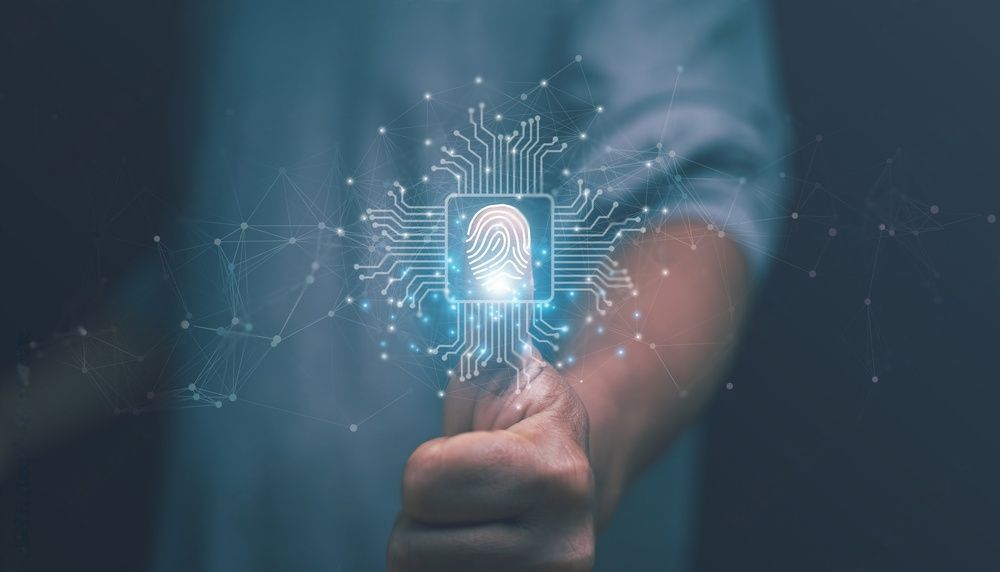The Ethics of Private Investigations: Balancing Privacy and Public Interest
Introduction
Private investigations are the unsung heroes of the shadowy world, navigating the complex web of secrets, lies, and mysteries. These individuals, often portrayed as enigmatic figures in popular culture, hold a unique position in our society. They are tasked with unearthing the truth, a task that is as noble as it is precarious.
In the digital age, where information flows freely and personal privacy is increasingly at risk, the ethics of private investigations have become a topic of paramount importance. This article seeks to unravel the intricate web of moral considerations that private investigators face in their quest for truth. It explores the fundamental question of how one can balance the imperative to protect individual privacy with the greater good of the public interest.
Our journey through the ethics of private investigations will take us through a labyrinth of principles, dilemmas, and real-world examples. It will shine a light on the core values that guide this profession and the ethical tightrope that investigators must walk. From transparency and confidentiality to the clash between technological advancements and personal rights, this exploration will be as enlightening as it is challenging.
Join us as we venture into the heart of the private investigator’s world, where the pursuit of truth encounters the moral compass of society. The balance between privacy and public interest is a delicate one, and understanding the ethical considerations involved is paramount in a world where the line between right and wrong is often blurred. In the pages that follow, we aim to shed light on this intricate and thought-provoking subject, offering insights into the ethics that underpin the world of private investigations.
The Ethics of Private Investigations
Ethics in private investigations encompass a range of principles and standards that dictate how investigators should conduct themselves, interact with clients and subjects, and handle sensitive information. These ethical guidelines are designed to ensure that investigations are carried out in a fair, lawful, and morally upright manner. Several key components define ethics in this context:
- Transparency and Honesty: Ethical investigators prioritize transparency in their interactions with clients and subjects. They provide accurate information about the scope of their work, potential outcomes, and any conflicts of interest. Honesty is fundamental to building trust and maintaining the integrity of the profession.
- Respect for Individual Rights: Private investigators must respect the rights and privacy of individuals who are the subjects of their investigations. This includes refraining from intrusive or illegal surveillance, respecting boundaries, and adhering to applicable laws and regulations.
- Confidentiality: Maintaining confidentiality is a cornerstone of ethics in private investigations. Investigators must safeguard sensitive information obtained during the course of their work and refrain from disclosing it without proper authorization. Breaching confidentiality can have serious legal and ethical consequences.
- Adherence to Legal and Regulatory Frameworks: Ethical investigators are well-versed in the laws and regulations that govern their profession. They ensure that their actions comply with these legal frameworks and seek legal guidance when necessary.
- Avoiding Conflicts of Interest: Private investigators must identify and address any conflicts of interest that may compromise the objectivity and integrity of their work. This includes disclosing any personal or financial relationships that could impact the investigation.
- Maintaining Professionalism: Ethics in private investigations extend to maintaining a high level of professionalism in all aspects of the job. This includes respectful communication, appropriate attire, and adherence to ethical codes and guidelines set forth by professional organizations.
- Prioritizing the Public Interest: While private investigators are typically hired by clients, ethical considerations extend beyond individual interests. Investigators must weigh the potential public interest in their findings against the privacy rights of individuals, ensuring a delicate balance between the two.
- Accountability: Ethical investigators take responsibility for their actions and decisions. They are open to scrutiny and accountability for their conduct, both to their clients and to the broader ethical standards of their profession.
In summary, ethics in the context of private investigations encompass a comprehensive set of principles that guide investigators’ behavior and decision-making. These principles revolve around transparency, respect for individual rights, confidentiality, legality, and professionalism. By adhering to ethical guidelines, private investigators can uphold the integrity of their profession and maintain the delicate balance between uncovering the truth and respecting individual privacy.
Balancing Privacy and Public Interest
Balancing privacy and public interest is a central ethical challenge in private investigations. Private investigators often find themselves at the intersection of these two critical considerations. Here, we explore the delicate art of maintaining an equilibrium between respecting individual privacy rights and serving the greater good of society:
Balancing Privacy and Public Interest
- Preserving Individual Privacy: Private investigators must always respect the privacy rights of the individuals they investigate. This includes refraining from invasive or illegal surveillance methods, respecting personal boundaries, and avoiding undue intrusion into someone’s personal life.
- Informed Consent: In cases where the subject of an investigation is aware of and consents to the inquiry, it is crucial for investigators to obtain informed consent. This ensures that individuals are aware of the investigation and willingly participate, preserving their autonomy and rights.
- Adherence to Legal Standards: Legal frameworks exist to delineate the boundaries of privacy and the public interest. Ethical private investigators are well-versed in these laws and regulations, ensuring that their actions fall within legal limits.
- Relevance and Justification: Investigators must establish a clear and justifiable reason for conducting an investigation that may infringe on an individual’s privacy. The public interest being served should be significant and compelling, such as uncovering criminal activity or ensuring public safety.
- Proportional Use of Information: Investigators should only collect and use information that is directly relevant to the case at hand. Gathering excessive or unnecessary information about an individual can be seen as an invasion of privacy and unethical.
- Minimizing Harm: Ethical investigators take steps to minimize harm to individuals who may be affected by the investigation. This includes protecting sensitive information, avoiding unnecessary disclosure, and preventing harm to innocent parties.
- Balancing Competing Interests: Private investigators often work on cases where the public interest and individual privacy rights may conflict. Ethical decision-making involves carefully weighing these competing interests and making choices that respect both.
- Professional Codes of Ethics: Many private investigator associations and organizations have codes of ethics that explicitly address the balance between privacy and the public interest. Investigators should adhere to these codes to ensure ethical conduct.
- Consultation and Legal Guidance: In complex cases, private investigators may seek legal guidance or consult with ethics committees to ensure that their actions align with ethical standards and legal requirements.
- Public Accountability: Ethical investigators are open to public accountability and scrutiny. They are prepared to justify their actions in the court of public opinion and to regulatory bodies.
Balancing privacy and public interest is an ongoing ethical challenge that requires careful consideration, ethical judgment, and a deep understanding of the nuances involved. Private investigators must navigate this complex terrain while upholding the highest ethical standards to ensure that their work serves the greater good while respecting individual rights to privacy.
Key Ethical Principles in Private Investigations

Key ethical principles in private investigations serve as the foundation for ethical conduct within the profession. Adhering to these principles ensures that private investigators maintain integrity, fairness, and legality in their work. Here are the essential ethical principles that guide private investigations:
- Transparency and Honesty: Private investigators must be transparent with their clients and subjects about the scope of their work, potential outcomes, fees, and any potential conflicts of interest. Honesty is essential to building trust and maintaining ethical conduct.
- Respect for Individual Rights: Respecting the rights and dignity of individuals is paramount. Investigators should avoid harassment, intimidation, or any actions that infringe upon an individual’s civil liberties or privacy rights.
- Confidentiality: Maintaining strict confidentiality is a fundamental ethical principle. Investigators must safeguard sensitive information and refrain from disclosing it without proper authorization. Breaching confidentiality can have serious legal and ethical consequences.
- Adherence to Legal and Regulatory Frameworks: Private investigators must have a comprehensive understanding of the laws and regulations governing their profession. They should ensure that their actions comply with these legal frameworks and seek legal guidance when necessary.
- Avoiding Conflicts of Interest: Investigators should identify and address any conflicts of interest that may compromise the objectivity and integrity of their work. This includes disclosing any personal or financial relationships that could impact the investigation.
- Maintaining Professionalism: High levels of professionalism are expected from private investigators. This includes respectful communication, appropriate attire, and adherence to ethical codes and guidelines set forth by professional organizations.
- Prioritizing the Public Interest: While private investigators are typically hired by clients, ethical considerations extend beyond individual interests. Investigators must weigh the potential public interest in their findings against the privacy rights of individuals, ensuring a delicate balance between the two.
- Accountability: Ethical investigators take responsibility for their actions and decisions. They are open to scrutiny and accountability for their conduct, both to their clients and to the broader ethical standards of their profession.
- Informed Consent: When conducting investigations involving individuals, investigators should obtain informed consent when appropriate. This ensures that subjects are aware of and consent to the inquiry, preserving their autonomy and rights.
- Minimizing Harm: Investigators should take steps to minimize harm to individuals who may be affected by the investigation. This includes protecting sensitive information, avoiding unnecessary disclosure, and preventing harm to innocent parties.
- Objective and Impartial Reporting: Investigators should provide objective and impartial reporting of their findings. They should not manipulate or skew evidence to favor any party or agenda.
- Continual Professional Development: Ethical investigators invest in ongoing training and education to stay current with evolving laws, technologies, and ethical considerations within their field.
These ethical principles collectively form the framework by which private investigators conduct their work ethically and responsibly. Adherence to these principles is essential for maintaining the trust of clients, protecting the rights of individuals, and upholding the integrity of the private investigation profession.
Case Studies in Private Investigations Ethics

Examining case studies in private investigations ethics can provide valuable insights into the real-world dilemmas that investigators may encounter and the ethical decisions they must make. Here are a few hypothetical case studies that illustrate ethical considerations within the field of private investigations:
Case Study 1: The Unfaithful Spouse
Scenario: A client hires a private investigator to confirm suspicions of their spouse’s infidelity. The investigator conducts surveillance and obtains evidence of the spouse’s extramarital affair.
Ethical Dilemma: Should the investigator share the evidence of infidelity with the client, potentially leading to the dissolution of the marriage, or should they refrain from sharing the information, respecting the client’s privacy and right to make their own choices?
Case Study 2: The Workplace Whistleblower
Scenario: An employee at a large corporation hires a private investigator to gather evidence of unethical and illegal activities within the company. The investigator discovers evidence of fraud, embezzlement, and other wrongdoing.
Ethical Dilemma: Should the investigator provide the evidence to the client and possibly expose the employee’s identity as the whistleblower, or should they anonymously report the findings to relevant authorities, protecting the whistleblower’s identity but potentially compromising the investigation’s effectiveness?
Case Study 3: Tracking Down a Missing Person
Scenario: A distraught family hires a private investigator to locate their missing teenage child. The investigator eventually locates the missing person, who is living in a different city under an assumed identity.
Ethical Dilemma: Should the investigator inform the family of the missing person’s whereabouts, respecting the family’s desire for closure, or should they respect the wishes of the now-adult missing person, who may not want contact with their family?
Case Study 4: The Corporate Espionage Suspect
Scenario: A corporation suspects that an employee is engaging in corporate espionage and hires a private investigator to gather evidence. The investigator conducts surveillance and obtains evidence of the employee sharing sensitive company information with a competitor.
Ethical Dilemma: Should the investigator provide the evidence to the corporation, potentially leading to the employee’s termination and legal consequences, or should they remain neutral and report the findings to law enforcement authorities, allowing the legal system to determine the appropriate course of action?
Case Study 5: The Injured Worker’s Compensation Claim
Scenario: An insurance company hires a private investigator to examine the legitimacy of a worker’s compensation claim. The investigator discovers evidence that suggests the claimant may be exaggerating their injuries.
Ethical Dilemma: Should the investigator share the evidence with the insurance company, potentially leading to a denial of the claim and financial hardship for the claimant, or should they remain neutral and let the insurance company and claimant resolve the matter through the legal process?
These case studies highlight the complex ethical decisions that private investigators often face in their work. Ethical investigators must carefully consider the principles of transparency, respect for individual rights, confidentiality, legality, and professionalism when navigating such dilemmas. The outcomes of these cases can have far-reaching consequences and underscore the importance of ethical conduct within the field of private investigations.
Conclusion
In the intricate world of private investigations, the delicate balance between uncovering the truth and respecting individual privacy has never been more crucial. Our exploration into the ethics of private investigations has shed light on the moral compass that guides the actions of dedicated investigators. It has revealed a profession that is not defined solely by its secretive nature but by the ethical principles that underpin its very existence.
Throughout our journey, we’ve examined the fundamental ethical principles that private investigators must uphold transparency, respect for individual rights, confidentiality, adherence to legal frameworks, and professionalism. We’ve seen how these principles serve as the bedrock upon which ethical conduct is built, ensuring that investigators act with integrity and fairness in every case they undertake.
The challenging task of balancing privacy and public interest has emerged as a central theme. Private investigators find themselves at the intersection of these two critical considerations, tasked with navigating a complex terrain where individual rights and societal welfare converge. It’s here that ethical decision-making takes center stage, demanding careful consideration and a commitment to doing what is right, even when it’s difficult.
The case studies we’ve explored have illuminated the real-world dilemmas that investigators face, illustrating the profound impact their ethical choices can have on individuals, families, and organizations. These cases underscore the importance of ethical conduct within the profession and the far-reaching consequences of ethical lapses.
As we conclude our exploration, we must remember that the ethical landscape of private investigations is not static. It evolves alongside technological advancements, changes in laws and regulations, and shifting societal norms. Private investigators must adapt and continually educate themselves to remain ethically vigilant in this ever-changing environment.
Our hope is that this article has sparked not only an awareness of the ethics that govern private investigations but also a commitment to upholding the highest ethical standards within the profession. Ethical private investigators are the guardians of truth, protectors of privacy, and champions of justice. They play a vital role in society, and their commitment to ethical conduct ensures that their work serves the greater good while respecting the rights and dignity of individuals.
As we conclude our journey into the ethics of private investigations , we invite you to carry forward the principles discussed here. Whether you are a private investigator, a client seeking investigative services, or simply a concerned citizen, an understanding of these ethical considerations empowers you to make informed choices and contribute to a world where truth, justice, and respect for privacy coexist harmoniously. In the realm of private investigations, ethics is not a mere guideline; it is the foundation upon which trust, integrity, and accountability are built.
















